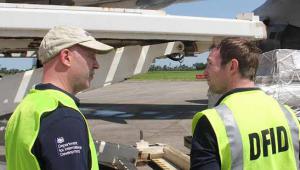In a critical report published today, the Independent Commission for Aid Impact (ICAI) suggested that the department had aimed too high too quickly in 2010 when it set out plans to scale-up funding to under-resourced fragile states afflicted by high poverty, weak systems and security challenges.
In 2010, the department committed to increase the amount of overseas development assistance in fragile states by 30%, up to £3.4bn by 2014/15. But the targeted volume of expenditure and the planned pace of the increase was out of step with the capacity of DFID, its partners and the countries to deliver them, the watchdog found.
Fragile-state programmes ranged from supporting female provincial councillors in Afghanistan to training government officials in districts liberated from Al Shabaab in Somalia.
‘DFID country offices had insufficient time to think through issues of objectives and delivery and to build support and leadership in their host environments for sustainable change,’ the report said.
‘The rationale was clear, even if the strategy was insufficiently developed.’
ICAI therefore rated the up-scaling of funding to fragile states as Amber/Red, saying programmes performed poorly for effectiveness and value for money.
However, it did highlight some positive changes, for example diversification of delivery partners and better management of fiduciary risk were both a result of increased funding.
‘DFID will be able to end extreme poverty only through a focus on fragile states. The decision to scale up funding in these environments is, therefore, logical,’ ICAI chief commissioner Graham Ward said.
‘It has taken DFID four years, however, for scale-up to start to deliver impact. Transformative impact in fragile states will take a generation to achieve and is dependent upon development of in-country state capacity.
‘This was insufficiently recognised at the start of scaling-up, where increased funding was directly linked to assumed greater impact.’
A DFID spokesman said: ‘The UK set ambitious targets in 2010 and we are now seeing results.
‘ICAI recognises that, despite the challenges of working in the most dangerous places in the world, we are now acknowledged as a global leader in this field.’












